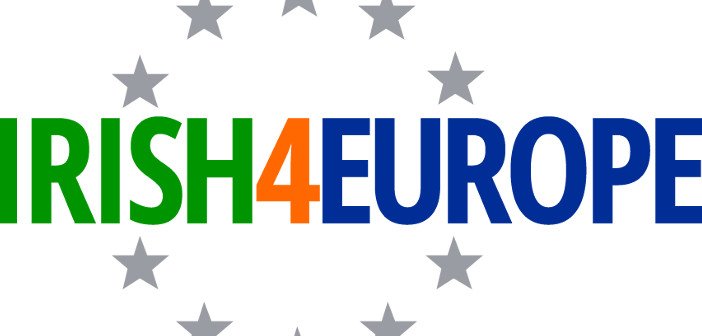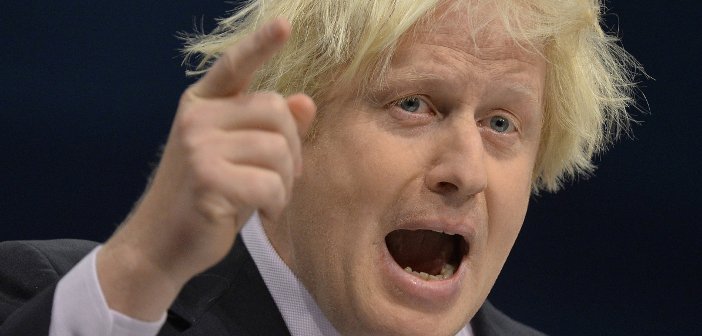Are Irish Expats More Likely to Support Britain Staying in the EU?
There is often a definite bias when it comes to how many of us perceive the possible results of elections. I have been guilty of assuming what’s true amongst my friends will be true for the population in general, an assumption which is frustratingly disappointing, and sometimes embarrassing (apparently some people did indeed vote for the Tories in the 2015 general election).[pullquote] I’ve found my own views on the upcoming Brexit vote to be echoed when speaking to most of the Irish people I know as an expatriate in London – primarily young Irish professionals in their 20s and 30s.[/pullquote]
But while my experiences certainly aren’t representative of the entirety of the UK, I’ve found my own views on the upcoming Brexit vote to be echoed when speaking to most of the Irish people I know as an expatriate in London – primarily young Irish professionals in their 20s and 30s. I was curious as to whether my friends were an oddity (definitely possible) or if there were particular reasons, or an international perspective, which meant that Irish voters were more likely to support the UK remaining in the EU.
When I spoke to Brian O’Connell from the Irish4Europe campaign, an organisation working to encourage Irish voters in the UK to ensure that they are registered to vote, I asked him directly if he could refer me to any particular campaigning groups encouraging Irish voters to vote to leave Europe. Despite his intense familiarity with this referendum, he too drew a blank.

Irish citizens are from one of the few EU countries whose expats in Britain will actually be eligible to vote in the referendum. As O’Connell noted, with over 600,000 Irish-born people living and working in Britain, it is a far larger group than citizens from Malta or Cyrus. If enough Irish voters do indeed turn out to vote on the 23rd of June, it could be greatly influential on the results of the referendum. When discussing with my friends about why they’re planning on voting against Brexit (and that is almost universal – I tried and failed to find an Irish friend in favour), some commonalities emerged.[pullquote]If enough Irish voters do indeed turn out to vote on the 23rd of June, it could be greatly influential on the results of the referendum.[/pullquote]
1) We find freedom of movement to be a positive thing for Britain.
Graduating late last decade has given many of us a particularly odd role in the movement of graduates from Irish universities – while clearly aware that the selection of jobs in Ireland were incredibly limited, plenty of graduates also love the experience and cultural opportunities of living in other European cities. I struggle to balance work with the interesting cultural events in London as often as I’d like, and while I always fully intend to visit film screenings at the Italian Cultural Institute or the cool new French bistro, I love that London is full of emigrants sharing their cultural traditions and making the city more vibrant.

Obviously Irish Londoners would not necessarily have their migration status threatened by Brexit (although as a non-EU citizen married to an Irishman, I would find immigration far more difficult), but plenty of EU friends and co-workers would not be so lucky. A friend in tech described the struggle to find a qualified programmer for the project he worked in, and noted how much easier freedom of movement made it when they found a qualified Hungarian.[pullquote]While I always fully intend to visit film screenings at the Italian Cultural Institute or the cool new French bistro, I love that London is full of emigrants sharing their cultural traditions and making the city more vibrant.[/pullquote]
EU freedom of movement meant that relocation was free from any complicated bureaucracy; my friend noted that he has little faith that leaving the EU would be beneficial for attracting highly skilled workers, who would now find it much less complicated to relocate to Paris or Berlin rather than London. On a recent trip to Greece, a tour guide who had studied in Surrey bemoaned the differences between Athens and London, noting that London had a group of young professionals who came from all over Europe, drawn to the promise of meritocracy it offered.
Leaving the EU would seem to undercut that ideal of the city of opportunity for those with talent, the ideal that brought most of us to London. “And of course,” a friend mentioned to me, “the idea of scary immigrants doesn’t have a lot of power with Irish people – we were the scary immigrants, 20, 50, 100 years ago.”
2) Brexit appeals to British nationalism and self-interest and, for obvious reasons, only to Brits.
“I’m not really swayed by the idea that Britain should stand alone on an international stage. I find it a lot more convincing when they’re concerned with working together,” a friend told me. Barack Obama’s appeal to international solidarity is far more convincing than the isolationist arguments of Tories like Ian Duncan Smith or Boris Johnson, whose racist musings about Obama’s ancestry did him no favours.

A friend from Donegal, when discussing his vote, told me that while he thought his life would be relatively unaffected whether the UK decided to stay or leave, the EU had been a great force for Irish infrastructure and rural development. Unlike the pro-Brexit campaign’s characterisation of the EU as a useless, far-away organisation, he felt that it had played a positive role in Ireland. The idea that this is, instead of an urgent matter of national security and economics, more of a public feud within the Conservative party, persists. It is notable that a vote to leave the EU seems incredibly unlikely to pass outside of England – many of my Irish friends feel far closer to Nicola Sturgeon than Michael Gove.[pullquote]“And of course,” a friend mentioned to me, “the idea of scary immigrants doesn’t have a lot of power with Irish people – we were the scary immigrants, 20, 50, 100 years ago.”[/pullquote]
O’Connell too cites concerns for Northern Ireland as one of the major reasons Irish voters may be concerned with the repercussions of a Brexit. He notes that many worry about the effects on Ireland’s open border with Northern Ireland as part of the Common Travel Area – would not only people, but also businesses be able to move so freely if not linked by the EU? He also cited the belief of voters that the political situation in Northern Ireland is greatly aided by the economic and issue-based cooperation which is facilitated by the presence of both countries in the EU. After all, with such strong trade links between Ireland and the UK, if the British economy suffers after a Brexit, the Irish economy would likely be affected as well. While most British politicians are, understandably, only concerned with the effects on Britain, most Irish expats have friends and family back home, and may even hope to one day return to Ireland themselves, and so have more of a global perspective.
It would be impossible to speak for all Irish voters in the UK (although if they wish to speak for themselves, the deadline to register to vote is the 7th of June), but it does seem that they bring a certain international understanding and broader perspective to the Brexit debate – and with so many Irish voters, they are likely to be an important voting group in this referendum.
